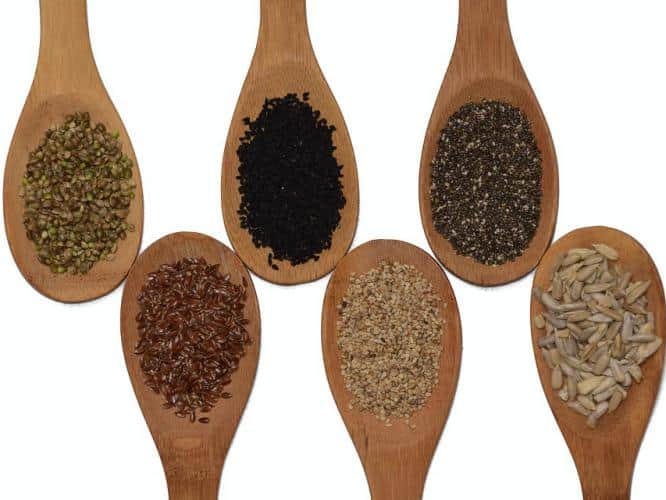The most significant principles of Ayurveda is of the Agni (fire) or the digestive power in our bodies.
To acquire a healthy body Ayurveda lays great emphasis on a robust digestive fire (agni). In reverse – a body with a low level of digestive fire builds up toxins and augments dis-ease. Ayurvedic Eating Rules enhance the digestive power to cleanse the build up. By slowly adapting to the “Ayurvedic Eating Rules” and following it in your daily eating and drinking rituals will fix the imbalance of toxins in your body.
1. Eat at a fixed time every day
Eating 2-3 meals a day at regular time interval consistently is recommended as per Ayurvedic Eating practices. Here lunch is to be considered as the biggest meal of the day.
Try and fix a schedule:
Breakfast: 7-9 am
Lunch: 12-2 pm
Dinner: 5-7 pm
For those of you following the intermittent fasting method of eating between 8 hours and fasting for the rest 16 hours the following schedule is recommended:
Brunch:10 am
Dinner:6 pm
When you eat at a fixed time everyday your body prepares itself for food and secretes the digestive juices before you actually eat. This helps in hormonal balance, regular digestion and keeps the body active all through the day.
If you eat late in the evening or night it interferes with your sleep. It is after 10.00 pm that your body is busy burning off toxins and digesting daytime meals. Therefore, eating late accumulates toxins in your system due to which you feel lethargic and tired in the morning.
Best time to Eat – Breakfast, Lunch and Dinner as per Ayurveda
2. biggest Meal of the Day As per Ayurvedic Eating Rules
In America most of us are used to eat dinner as our biggest meal of the day. However, the digestive fire in our bellies are in sync with the sun’s energies and are strongest in the afternoon.
“Ayurveda seeks to connect our mind and body with the environment.”
Therefore, it is advised that one should consume cheese, potatoes, fries, meat or other heavy meat like food for lunch. Here you can also eat bigger portions as compared to dinner.
Eating healthy as Per Ayurveda
3. The Right way to Drink water as per Ayurveda
The ways you drink water affects your health as per Ayurveda. Ayurvedic Eating Principles forbid the drinking of water before and after meals.
Drinking Water before Meals – As per Ayurveda the digestive power (agni) gets weakened if you drink water before meals as water is cool and dilutes the digestive juices built up to break the food down. Therefore, drink water at least 45 minutes before your meals. In case you need to eat medicines before meals – eat them with as less water as possible, 20 minutes before meal time.
Effects of drinking water before meals – weakness and emaciation.
Drinking Water after Meals – with the intake of water right after your meals – food you eat becomes much more diluted and so do the digestive and power with the intake of water. Therefore you should avoid drinking water a few hours after eating your meals.
Effects of drinking water after meals – bloating, obesity and indigestion.
Drinking Water in between Meals – Water can be consumed in moderate amount in between meals – especially if you are suffering from any of the diseases like: tumors of abdomen, poor digestion, diarrhoea, enlarged abdomen.
Effects of drinking water in between meals – is good health
11 Proven Health Benefits of Having Ginger for men and women
4. Chewing Food as per Ayurveda
Contrary to regular belief digestion naturally starts in the mouth and not in the stomach. That is the reason why the chewing of food and the number of times you do so – is such a significant part of Ayurvedic Eating Rules. Your objective to chew food is to grind it into a fine paste. It is a habit we acquire while we were kids and to break out of any habit takes time and conscious effort.
The basic rules to chew food are:
- Chew each bite of food at least 32 times because Saliva helps in breaking down the food in the mouth.
- Chew Slowly and savor each bite
- Swallow the food into your mouth once you have used your teeth to completely grind the food into a semi liquid form and it’s texture has changed.
- Finish biting and swallowing before you put another fresh bite in your mouth.
- Do not drink anything while there is food in your mouth.
It takes 20 minutes for the hormones to be produced to send signals to your brain that it’s full. Once your stomach stretches then only these hormones start secreting after the food goes in it. Thus, if you eat slowly, you naturally give yourself time to eat less in the first 20 minutes. Therefore, it helps you to avoid stuffing yourself in those first 20 minutes and stops you from giving you a chance to over-eat.
As per Ayurvedic Eating rules you should stop eating before you are full. The practice of chewing slowly aids you in doing exactly that by telling you in time that you are full.
We Found Out If It Really Takes 20 Minutes To Feel Full
5. Add Clarified Butter (Ghee) to each meal
Ghee or clarified butter, (especially from the cow) has been used in Ayurveda like a medicine since ancient times.
Benefits of Eating Ghee:
a. Clarified butter has anti-aging properties often used to rejuvinate the digestive system in Ayurveda. It deeply nourishes the cells in the body.
b. It is a cleanser since it lubricates the system and flushes out long accumulated toxins in the body.
c. Ghee acts as a stimulant for the Digestive Fire (Agni) as well as helps absorb and assimilate the nutrients in the food.
How to add ghee to your diet?
It is advised to add 1 teaspoon of ghee to every meal in place of oil or butter. It can easily be added to soups, rice, khichari (rice and pulses cooked together), saute vegetables, lentils, stir fries and oatmeal.
7 Benefits of Home Cooking Vs Eating Out
How does eating Turmeric prevent Cancer
Guide to Meditation for Beginners
The F-word super personal trainer Sapna Khanna uses with effect
Ayurvedic Body Type: Find Your Dosha








